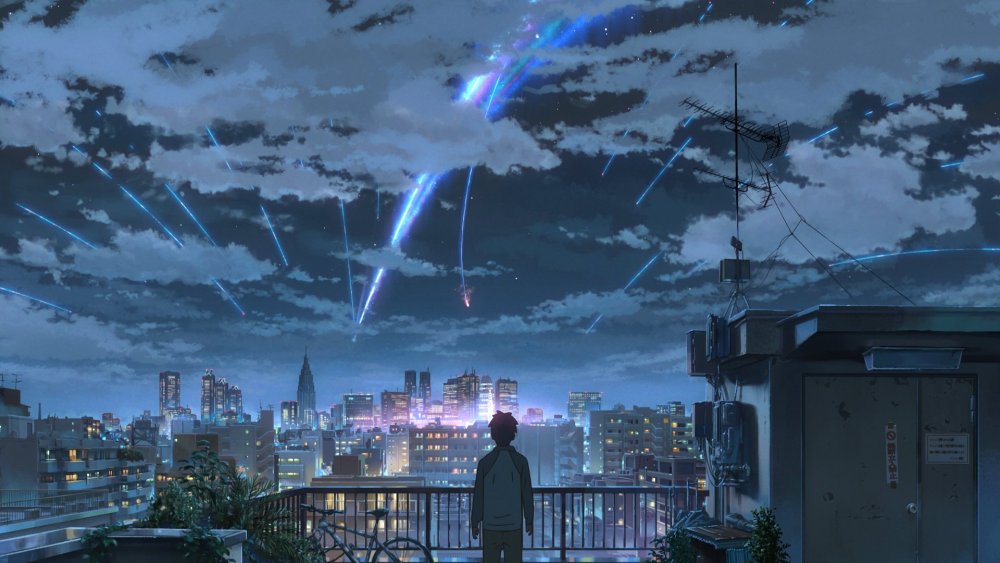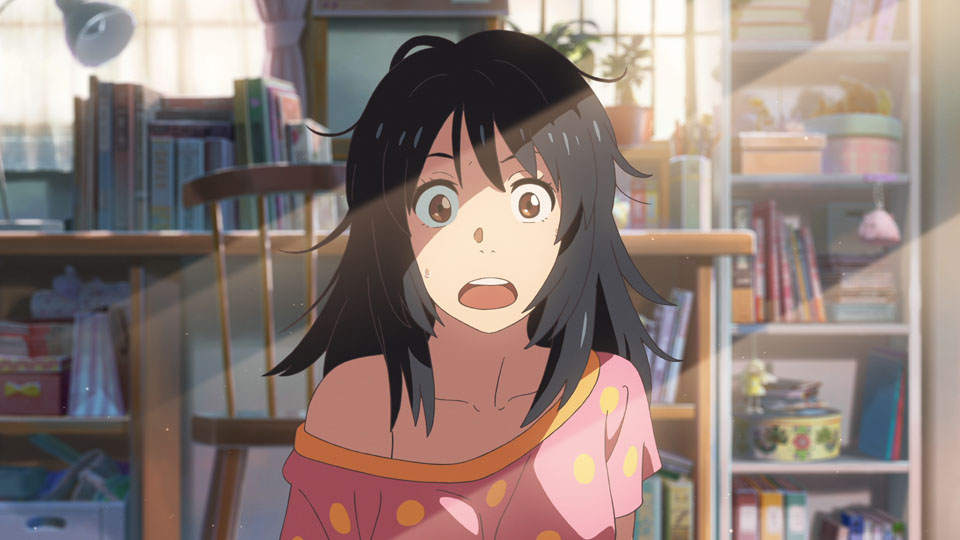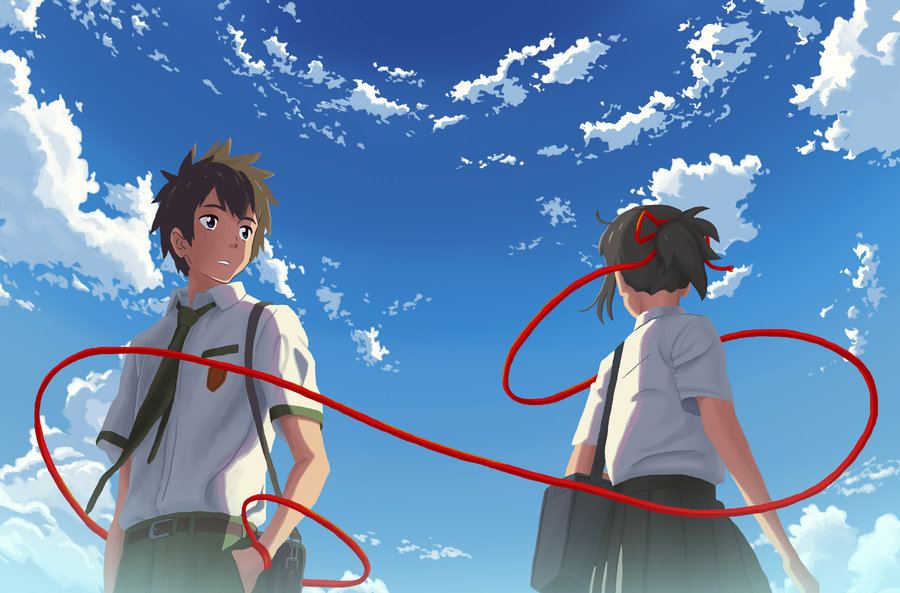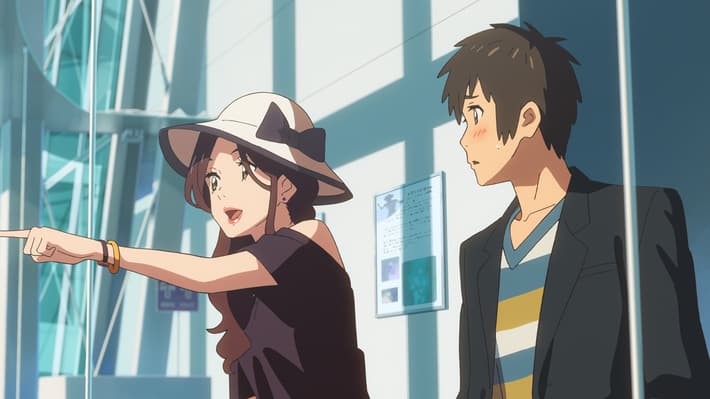
“Your Name” proved that Makoto Shinkai is the next “master” of anime, with the film becoming the fifth highest grossing film of all time in the country – domestic or imported – and the second biggest domestic film ever, behind the Oscar-winning “Spirited Away”. It is also the first anime not directed by Hayao Miyazaki to earn more than $100 million at the Japanese box office. Here are seven reasons that explain the phenomenon.
Please take caution before reading, because the list contains many spoilers.
1. Meaningful script with comments on many subjects

Mitsuha, a high school girl from the small town of Itomori, has a very complicated life. Her mother’s family has been in charge of the local Shinto shrine for generations, and since her father abandoned them to become the mayor, the task has fallen on her and her sister, under the tutelage of their grandmother. Furthermore, she has started having some very peculiar and very vivid dreams, while she seems to exhibit some strange behaviors at school, which she remembers nothing about.
Eventually, she realizes that occasionally she takes the place of a high school boy from Tokyo named Taki, and vice versa. As the two of them start to fathom what is happening to them, they try to find a code of communication in order to keep their lives from being ruined. After some time, they start getting along, but soon tragedy comes knocking.
Shinkai presented an elaborate script that allowed him to display his thoughts on many concepts. The first one is memory, the way it works, and the way it shapes people’s character and even the future. The second is time, particularly regarding the fact that many people would like to turn back time in order to reverse their past mistakes. The third is family, particularly regarding the burden that the older, traditional ones place on the new generations.
Mitsuha’s father could not cope with it and abandoned the family; Mitsuha bares it, but wants to escape and is occasionally ashamed by it; and her grandmother cannot even consider another way of living. The fourth is the Fukushima disaster, which is presented metaphorically through the meteorite falling in Itomori. Through this concept, Shinkai presents the way the actual incident shaped the lives of the survivors and the impact it had on the entire country.
The fifth is human relations, which is presented through a number of interactions; Between sisters, between fathers and children, among friends, among classmates, among colleagues, and finally, among romantic ones. The last one is love, which is presented as a truly omnipotent sentiment that can transcend all of the above.
2. Combination of drama, comedy, romance, and coming-of-age

Shinkai managed to combine all the aspects mentioned in the previous point in a very entertaining fashion, maintaining the titles’ depth while keeping it engaging. The way he achieved this objective is by elaborately combining elements of comedy, drama, romance, and coming-of-age.
Comedy is the first element presented in the film, as the two protagonists mess with each other’s lives by performing a number of bloopers. In particular, the way both of them feel about their opposite-sex bodies is hilarious. The drama is witnessed through the way Mitsuha’s classmates make fun of her, and to her treatment by her father and her family situation in general, with the apogee coming with the catastrophe.
Romance is presented in two axes. The first through the unrequited love other people feel for the two protagonists. The second is through the love that flourishes between Mitsuha and Taki, and in the most unlikely way. Lastly, through the miracle of switching lives and the consequences of the meteorite crash, both of them mature as people in a distinct, coming-of-age fashion.
Furthermore, he managed to portray all of these elements in a very entertaining fashion, since the anime elaborately combines comedy with drama, very interesting characters, a sense of nostalgia, and agony, particularly in the end.
3. Transcending the “switching lives” concept

The concept has been presented quite many times, particularly in Hollywood, with films like “Vice Versa”, “17 Again”, “Big”, and many more. However, Shinkai took the concept a step further, as the switching takes place across time, place, and gender, although the latter has been done again. Furthermore, the fact that the two individuals eventually fall in love and manage to change Mitsuha’s fate and themselves is unique.
Shinkai centers the story on this concept, and he transforms it as the story progresses. It starts by being funny before it becomes serious and even dramatic, while retaining its entertainment value at all times. Lastly, he sends a message through it, that love can transcend anything and even perform miracles.
4. Very interesting characters

The characters are another point of excellence in “Your Name”, particularly due to their complex relationships. This trait is quite evident in Mitsuha’s character, who seems to share complex relationships with everyone surrounding her. Her little sister seems to be the responsible one, always taking care of her.
Mitsuha seems to love her grandmother, but occasionally she despises the way of life she has forced upon her. She has two best friends; Katsuhiko, who seems to have a crush on her; and Sayaka, who is annoyed by this fact, since she has a crush on Katsuhiko.
Her father has abandoned her, but still bosses her around. Her classmates mock her for her father’s occupation and his relationship with Katsuhiko’s father, who is a contractor, and for her dealings with the family shrine. However, her most complex relationship is with Taki.
He, on the other hand, has a complex relationship with his father, who does not seem to care much about him. His classmates, who worry about his temper and his sudden changes of character, actually act as his family. Miki, who seems to like him as much as he does her, eventually lets him go when she realizes that he is in love with someone else.